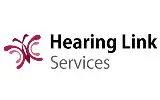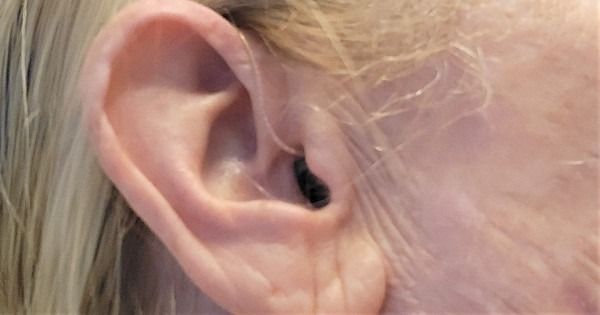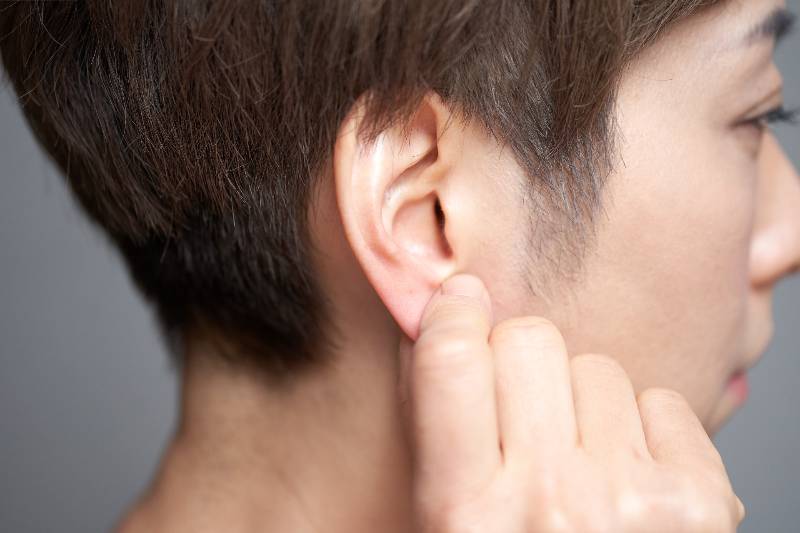Introduction
Navigating the world of silence isn’t straightforward, particularly for seniors dealing with conductive hearing loss. It is a reality that demands courage, resilience, and patience to surmount daily challenges, both minor and significant. However, understanding these trials is the first step in better managing the situation and ensuring a quality life.
The diagnosis of conductive hearing loss paints a new reality for individuals—a world where sounds are muffled, and communication seems like an arduous task. The effects of this condition ripple into every facet of their lives, from personal relationships to professional settings. But life does not halt with hearing loss.
Armed with the right knowledge, tools, and support, seniors with conductive hearing loss can thrive despite the odds. This post delves into the world of those living with conductive hearing loss. It explores the challenges seniors face as they age, workplace obstacles, the transformative power of support groups, self-image and confidence issues, and, most importantly, coping strategies to help them lead fulfilling lives.
Remember, conductive hearing loss might bring forth changes, but it does not define an individual. Their spirit, strength, and tenacity ultimately dictate their journey.
Audien BTE (Behind the Ear) Rechargeable OTC Hearing Aid
Experience Unparalleled Sound Quality with the New Audien BTE (Behind the Ear) hearing amplifier. Elevate your hearing with the clearest, highest-quality sound available in an over-the-counter hearing assistance device. Designed by Audien, renowned for their sleek and comfortable hearing devices, the BTE model ensures exceptional hearing performance. It features advanced digital technology, including four environmental modes, background noise reduction, feedback cancellation, and two directional microphones per unit (four in total).
Say Goodbye to Missed Conversations and Hello to Superior Sound. Audien hearing devices excel at amplifying speech while reducing background noise, allowing you to effortlessly engage in conversations with friends and family. Experience the consistent, long-lasting, and sharp sound quality without any whistling or feedback issues. With customizable volume control, you can easily adjust the amplification to meet your individual needs. These devices are perfect for enhancing high tones and improving TV dialogue clarity.
Rechargeable for Uninterrupted Use. The Audien BTE hearing amplifiers are 100% rechargeable, offering convenience and freedom from the hassle of tiny button batteries. With wireless magnetic charging technology, you can enjoy a 20-hour battery life with just a quick two-hour charging time. The included charging case provides up to three full charges, giving you a total of 60 hours of amplified sound. Simply place the devices in the case, and they will wirelessly charge, ensuring you’re always ready to hear your best. Experience the ease and reliability of Audien sound amplifiers, ideal for individuals with dexterity issues or those tired of constantly purchasing and replacing batteries.
Understanding the Challenges of Aging with Conductive Hearing Loss
The journey of aging unfolds differently for every individual. For seniors with conductive hearing loss, aging can present a unique set of challenges that require proactive management and understanding from family, friends, and healthcare providers.
The intersection of aging and conductive hearing loss means not only coping with the natural physiological changes that come with age but also dealing with the emotional, psychological, and social challenges of hearing loss. One of the most apparent challenges is communication. Conversations become straining and strenuous, leading to social withdrawal and isolation. Moreover, seniors may struggle to hear warning signals, making them vulnerable to safety risks at home.
Medical management of other age-related conditions alongside conductive hearing loss can also pose a hurdle. For instance, the necessity to hear and understand medical advice or the need to communicate symptoms and problems effectively to healthcare providers becomes a significant task. This complexity is further compounded when hearing aids or implants are considered. A senior’s dexterity or cognitive abilities might limit the successful utilization of these devices.
Despite these challenges, seniors with conductive hearing loss have a myriad of strategies at their disposal to enhance their quality of life. They can utilize visual cues, ensure effective use of hearing aids, and work with speech therapists. Aging with conductive hearing loss is challenging but not insurmountable.
FAQ – Hearing Loss: Learn what you need to know
Overcoming Workplace Challenges with Conductive Hearing Loss
Navigating the workplace with conductive hearing loss is a delicate dance of managing communication barriers and building an understanding environment. For seniors still in the workforce, the challenges can be daunting. The workplace is a hub of quick conversations, bustling activity, and dynamic interactions—all elements that can pose difficulties for those with hearing loss.
Conversations in crowded meeting rooms, understanding directives in noisy environments, or following phone conversations can all be challenging. Beyond communication difficulties, individuals may also face stereotypes and discrimination due to misconceptions about hearing loss. These obstacles can lead to anxiety, stress, and decreased job satisfaction, impacting overall productivity and career progression.
However, overcoming these challenges is not an insurmountable task. Firstly, open communication about one’s condition with employers and colleagues is crucial. Most are willing to make necessary accommodations once they understand the situation. Techniques such as utilizing visual aids during meetings, written communication, and using assistive hearing devices can make a significant difference.
Moreover, seniors should not shy away from advocating for their needs, like requesting quiet workspaces or utilizing technologies that amplify sound. Legislation such as the Americans with Disabilities Act (ADA) also offers protections for individuals with hearing loss, ensuring they have equal opportunities in the workplace.
The Role of Support Groups in Living with Conductive Hearing Loss
Support groups play an invaluable role in the lives of those living with conductive hearing loss. These communities offer a sanctuary—a safe space where people share experiences, provide mutual support, and exchange coping strategies. They serve as a source of comfort and a platform to voice concerns and fears without judgment.
For seniors with conductive hearing loss, support groups can help mitigate feelings of isolation and loneliness often associated with the condition. Being surrounded by individuals facing similar challenges can foster a sense of belonging and understanding. This camaraderie can be empowering, helping them navigate the emotional landscape of living with hearing loss.
Support groups also provide educational resources and keep members updated on the latest advancements in managing conductive hearing loss. Information on new hearing aids, cochlear implants, therapy techniques, and accessibility tools are often shared within these groups.
Moreover, they also provide a platform to advocate for the rights and needs of individuals with conductive hearing loss. Whether it’s pushing for legislative changes or demanding better accessibility in public spaces, there’s strength in numbers.
The shared stories, collective wisdom, and mutual encouragement found in support groups can be the catalyst for seniors with conductive hearing loss to move from merely coping to thriving.
QUIZ - CAUSES OF HEARING LOSS IN CHILDREN
Conductive Hearing Loss: How It Affects Self-Image and Confidence
It’s no secret that conductive hearing loss can significantly impact one’s self-image and confidence. The inability to participate fully in conversations or social activities can lead to feelings of embarrassment and isolation. Seniors, particularly, may feel that their hearing loss symbolizes aging and loss of independence, leading to lowered self-esteem.
Communication is a cornerstone of human interaction, and barriers to it can strain personal and professional relationships. As a result, individuals with conductive hearing loss may withdraw from social situations, exacerbating feelings of loneliness and further damaging self-confidence.
Moreover, the practicalities of living with hearing loss—such as having to ask people to repeat themselves, or misunderstanding conversations—can create anxiety and frustration. Over time, these experiences can significantly impact a person’s perception of their capabilities and value, leading to a diminished self-image.
Despite these challenges, it’s important to remember that hearing loss is not a reflection of one’s worth or abilities. There are many strategies and resources available to help rebuild confidence. This includes counseling, joining support groups, exploring assistive technologies, and embracing open communication with loved ones and peers about the condition.
Tinnitus: why it’s still such a mystery to science
Coping Strategies for Living with Conductive Hearing Loss
Living with conductive hearing loss requires a set of adaptive strategies to navigate day-to-day challenges. These strategies go beyond medical interventions and delve into changes in communication habits, lifestyle adaptations, and mental health considerations.
One effective strategy is adopting visual and tactile forms of communication. Reading lips, using sign language, or relying on text-based communication can help improve understanding. Furthermore, seniors can use assistive listening devices such as hearing aids or cochlear implants, which can significantly improve hearing capabilities in various environments.
Beyond communication, maintaining an active and healthy lifestyle can also help manage conductive hearing loss. Regular exercise can improve overall well-being and mental health, while a healthy diet can counteract conditions that may exacerbate hearing loss, such as high blood pressure or diabetes.
Finally, mental health is a crucial aspect of coping with conductive hearing loss. Seniors are encouraged to seek help from mental health professionals if they’re struggling with feelings of isolation, depression, or anxiety. Support groups can also provide comfort and understanding, offering a shared sense of community and camaraderie.
Indeed, living with conductive hearing loss presents a myriad of challenges, but these obstacles don’t have to define one’s life. With the right strategies, tools, and mindset, individuals can lead a fulfilling and meaningful life despite their hearing loss.
https://www.hearing-loss.news/ringing-in-the-ears-uncovering-tinnitus/
Summary
Living with conductive hearing loss as a senior can undoubtedly present a unique set of challenges, affecting various aspects of daily life, from communication and work to social interactions and self-image. However, through understanding these challenges and employing effective coping strategies, seniors can navigate their way to a fulfilling life.
Overcoming the hurdles in the workplace requires open communication, accommodations, and sometimes, advocating for rights and needs. Support groups serve as a haven, providing emotional support, resources, and a sense of community, empowering individuals to move beyond merely coping to truly thriving.
Meanwhile, it’s crucial to address the impact of conductive hearing loss on one’s self-image and confidence. Remembering that hearing loss isn’t a reflection of one’s worth or abilities, and utilizing available resources, can help rebuild self-esteem. Lastly, employing coping strategies—from adaptive communication techniques and lifestyle changes to prioritizing mental health—can greatly enhance the quality of life for seniors living with conductive hearing loss.
In essence, while conductive hearing loss can change the way one navigates the world, it doesn’t have to limit one’s potential for living a vibrant and fulfilling life.
REFERENCES
Hearing Link
A UK-based hearing loss organization offering information and support to individuals and families, including resources on conductive hearing loss.








